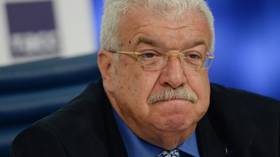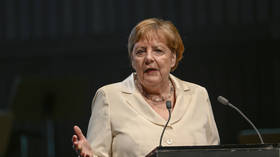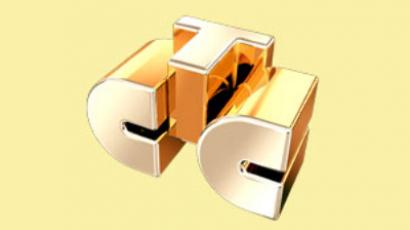Arkady Dvorkovich on the Russian economy
Taking time out from the sessions of the Krasnoyarsk Economic Forum, Presidential Aide, Arkady Dvorkovich spoke with RT about the pressing economic issues facing the Russian economy.
RT: Here at the Krasnoyarsk forum, this brainstorm, what kind of anti crisis measures were discussed, and did you discuss consumption stimulation, which has proven to be very effective in China?
AD: “Consumption stimulation is one of the ideas which is being assessed by the government right now, and its being assessed from the point of view of overall budget constraint, given the amount of resources we have – what is the most efficient use of these resources – whether we need to reduce taxes or whether we need to stimulate consumption by direct expenditure, or provide additional social guarantees. The most likely outcome of this process is a compromise solution, where all kinds of methods and instruments will be used to some extent. And stimulation of consumption will be part of the process, in particular in the area of demand for housing, and other consumer durables, rather than short term consumption.
The government will continue to provide refinancing of mortgages, not only for people who are in a difficult situation right now, and the decision was already taken, but also to provide for normal process of mortgage financing. The amount of resources is not clear at this point, but some volumes will be allocated for these purposes.”
RT: What is your forecast regarding GDP and inflation figures for 2009?
AD: “The current forecast for GDP is slightly below minus 2%, so we expect economic decline for this year. And this figure is in line with January estimates for GDP reduction of minus 2.4% adjusted for seasonality. And also this implies that investments will go down, and unemployment will go up. But we have resources in the budget that are sufficient to deal with employment issues, and provide people with temporary or permanent jobs in the most difficult regions and situations.
As far as inflation is concerned. The current developments show that inflation will be, at least at the same level as last year, so slightly more than 13%. There are some additional inflationary risks coming from the exchange rate adjustment that has already happened, and we expect that inflation can go up in the next few weeks. But for the year as a whole we also expect that there will be downward pressures related to commodity prices, reduction of costs for construction, will push inflation down. So overall we do not believe that inflation will jump, and the most likely outcome is that inflation will be slightly higher than last year.”
RT: Russia is facing a budget deficit this year – how is it likely to be covered?
AD: “The most likely outcome is that the deficit will be about 8% of GDP, or slightly higher than this figure, and given this big amount of money that should be covered from some sources, we consider various ways. But the major resource for financing of the budget deficit is the Reserve Fund that we have accumulated over the last few years, exactly for this particular purpose. And we will avoid expensive borrowing, and the government will go to the market for new borrowing only if market conditions improve. Until that the reserve fund will be used to finance the budget deficit.”
RT: Is the current refinancing rate of the Bank of Russia good for the Russian economy?
AD: “The Central Bank is creating a brand new refinancing system, which didn’t exist before. And the central bank provides mostly short term liquidity for commercial banks. For the time being it’s the most efficient way. But the central bank, together with the government, should find new mechanisms to provide longer term resources for the financial system as a whole, for the economy as a whole. And it is not just central bank financing, its about the creation of higher pension reserves, insurance system where longer term resources will be accumulated, and provided for the economy, for investment programmes.”













